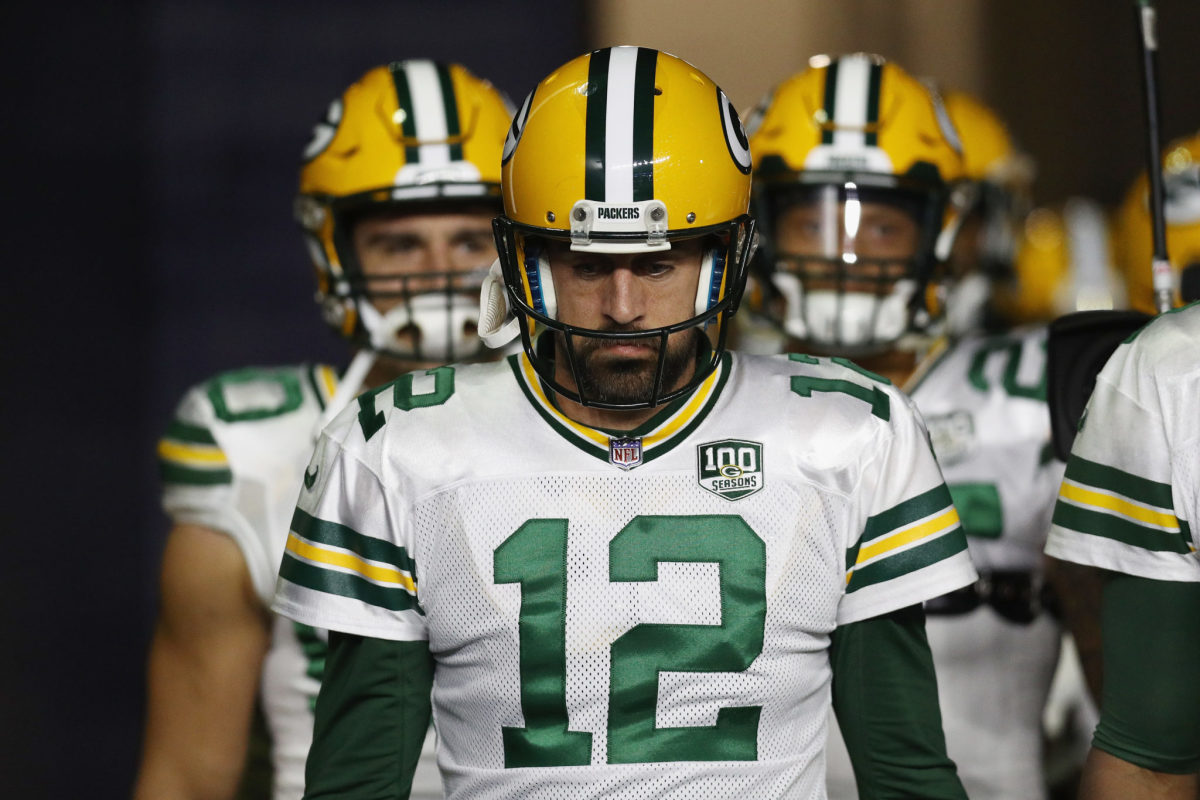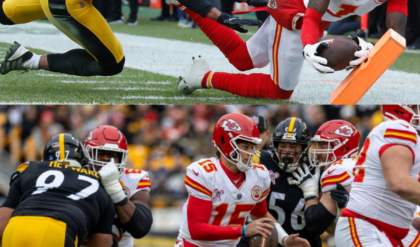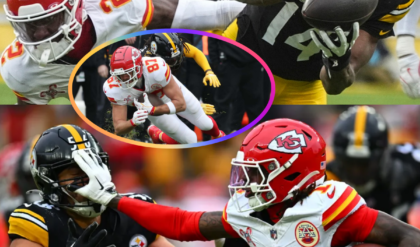Aaron Rodgers, the star quarterback who was expected to save the New York Jets, has recently stirred the pot with some fiery comments about the media. The veteran quarterback, in a conversation with Pat McAfee, criticized both current and former players turned pundits, accusing them of making baseless, attention-seeking remarks to stay relevant. According to Rodgers, these media figures are only trying to keep themselves in the spotlight by offering outlandish opinions, something he claims wasn’t as prevalent in the mid-2000s. However, his words didn’t sit well with former players and media figures, including Stephen A. Smith, who didn’t hold back in responding.

Rodgers Critiques the Media
In his conversation with McAfee, Rodgers didn’t mince words when discussing the media. “There’s a lot of people talking about the game now—both non-players, non-former players, and former players who are trying to stay relevant,” he said. Rodgers suggested that these pundits were simply trying to make outrageous statements to get attention and stay in the public conversation, rather than offering genuine, well-informed analysis of the game. He also expressed frustration with how the media landscape has changed since the mid-2000s, where sports shows were more about highlighting the best moments of the game, not fueling drama.
Rodgers’ comments were aimed at former players turned analysts, who he believes have lost touch with what it means to be an athlete and are instead using their platform for personal gain. His statements stirred a strong reaction from fellow athletes and media personalities, including ESPN’s Stephen A. Smith, who wasted no time calling out the Green Bay Packers legend.
Stephen A. Smith Fires Back
Stephen A. Smith, a longtime sports commentator known for his fiery takes, didn’t hold back in his response to Rodgers’ criticism. Appearing on First Take, Smith called out Rodgers for what he saw as hypocrisy. Smith argued that while Rodgers was attacking media personalities, he was also benefiting from the same system by appearing on McAfee’s show and using his own platform to express opinions.
Smith remarked, “That is weak!” in response to Rodgers’ comments, suggesting that the quarterback was being “toned-deaf” in criticizing others for doing exactly what he himself was doing. “You’re being paid to be on that show to give your thoughts and opinions as a personality,” Smith said, addressing Rodgers directly. “You’re not any different from the people you’re complaining about. You’re just as much a part of the media now as anyone else.”
Smith also pointed out that Rodgers’ frustrations were likely rooted in his struggles with the Jets, as the team continues to disappoint despite his high-profile arrival. “He’s not used to being in a position where his stats aren’t backing up the hype,” Smith explained. “Rodgers is not used to this, and that’s why he’s lashing out.”
The Hypocrisy of Rodgers’ Comments
Stephen A. wasn’t the only one who took issue with Rodgers’ stance. Ryan Clark and Cam Newton, both former NFL players turned analysts, also weighed in. Clark, in particular, emphasized the hypocrisy of Rodgers calling out former players in the media while simultaneously benefiting from the same platform. He pointed out that Rodgers, like other former athletes, is now part of the media landscape and shouldn’t be quick to criticize others who are simply doing their jobs.
Cam Newton echoed similar thoughts, emphasizing that Rodgers seems unaccustomed to criticism, especially after years of being the celebrated hero. Newton noted that many athletes, like Rodgers, aren’t used to having their legacy questioned. “He’s not used to being in a position where his stats don’t back him up,” Newton said, adding that Rodgers’ complaints sounded like a reflection of his frustration with his current situation.
Stephen A. Calls Out Double Standards
Stephen A. also highlighted what he saw as a double standard in how the media treats athletes. He pointed out how people in the media, particularly former players, are often criticized for speaking out, whereas analysts from other backgrounds—like those in traditional journalism—don’t face the same level of scrutiny. “When it’s a former player, all of a sudden, it’s problematic,” Smith said. “But when it’s someone from a different background, no one says a word.”
Smith’s comments underscored a growing frustration among athletes-turned-analysts, who often face criticism from their peers when they shift from playing to commenting. He noted that the media landscape has evolved, and former players have a unique perspective that allows them to offer valuable insights. However, the criticism of these former athletes is often rooted in jealousy or an unwillingness to accept the new role they’ve taken on in the sports world.
Conclusion: The Growing Tension Between Athletes and the Media
Rodgers’ comments have sparked a larger conversation about the evolving relationship between athletes and the media. The lines between player and pundit have become increasingly blurred, with former athletes like Rodgers now playing both roles. While Rodgers’ frustration is understandable, given the Jets’ disappointing season, his critique of the media seems at odds with his own position as a media personality.
Stephen A. Smith, Ryan Clark, and Cam Newton’s responses reflect the growing tension between athletes who are part of the media world and those who remain strictly competitors. As the sports media landscape continues to shift, one thing is clear: criticism of athletes, whether it’s about their performance or their leadership, isn’t going anywhere—whether they like it or not.
Rodgers may be frustrated with the media, but as Smith pointed out, “You can’t be mad at the system you’re a part of.” The question now is whether he can find a way to navigate the spotlight, both as a player and as a public figure, without losing his cool.





